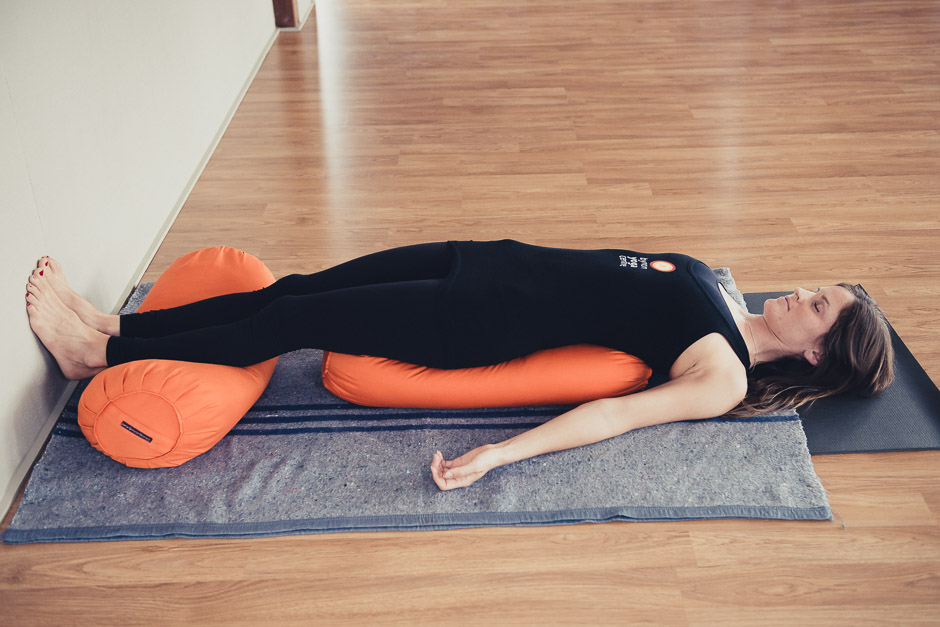

In fact, it’s ideal if you have health concerns or injuries, as the gentle and supported restorative yoga poses promote healing. Improves sleep quality and can reduce insomniaĪnother massive benefit of restorative yoga is that it is the most accessible yoga style, suitable for all.Promotes deep relaxation in the body and mind.The benefits of this yoga practice include the following: This signals the muscles to relax and the brain to slow mental activity. When we practice restorative yoga poses, the sympathetic nervous system (fight-or-flight mode) shifts to the parasympathetic nervous system (relaxation response). Moreover, it is highly beneficial to our modern-day lives as it gives us a chance to slow down, reset, and switch off – something most of us don’t do enough other. Restorative yoga perfectly complements a more active yoga practice and fitness regime and balances the yin and yang energies. Thus, by supporting your body with multiple props, you can stay in each position for long periods without engaging the muscles. Instead, the aim is to fully relax the body and promote healing and rejuvenation (physically, mentally, and emotionally). Unlike yin yoga, you don’t apply stress to the tissues in restorative yoga. One of the fundamental principles is using props to support the body. In a restorative yoga class, you’ll practice only floor-based (seated and reclined) postures, which you will hold for extended periods (several minutes each). Restorative yoga is a slow, passive style focusing on healing and relaxation. 5 Final Thoughts On Restorative Yoga Poses.3 A 60-Minute Restorative Yoga Sequence For All Levels.Racial and Ethnic Health Disparities 2018 5:62-72. A restorative yoga intervention for African-American breast cancer survivors: A pilot study. Yoga therapy for breast cancer patients: A prospective cohort study. Sudarshan M, Petrucci A, Dumitra S, Duplisea J, Wexler S, Meterissian S. Yoga for the management of cancer treatment-related toxicities. Lin P-J, Peppone LJ, Janelsins MC, et al. Effects of yoga on psychological health, quality of life, and physical health of patients with cancer: a meta-analysis. Lin K-Y, Hu Y-T, Chang K-J, Lin H-F, Tsauo J-Y. Establishing key components of yoga interventions for musculoskeletal conditions: A Delphi survey. Ward L, Stebbings S, Sherman KJ, Cherkin D, Baxter GD.

The effect of yoga on stress, anxiety, and depression in women. Shohani M, Badfar G, Nasirkandy MP, et al. The effect of yoga on sleep quality and insomnia in women with sleep problems: A systematic review and meta-analysis. Wang W-L, Chen K-H, Pan Y-C, Yang S-N, Chan Y-Y. stretching on diurnal cortisol dynamics and psychosocial outcomes in individuals with the metabolic syndrome: the PRYSMS randomized controlled trial. Exploring the therapeutic effects of yoga and its ability to increase quality of life. Gentle on the body: Restorative yoga practices are gentle on the joints, and consistent practice can strengthen the connective tissues that surround the bones and joints.Reduced pain: Studies show that different styles of yoga including restorative yoga are helpful interventions for the management of musculoskeletal pain.Better mood: Research shows that yoga can help those with stress, anxiety, depression, and other mood disorders manage their symptoms.Improved well-being: Yoga practices, in general, are commonly associated with improved physical and mental well-being in the general population.Researchers determined that yoga is an effective intervention for managing sleep problems by increasing melatonin and reducing hyperarousal. A 2020 meta-analysis looked at 19 different studies on how different types of yoga-including restorative yoga-can impact sleep quality. Better sleep: The more relaxed you are, the better your chances are of getting a good night's rest.A 2014 study suggests that restorative yoga is more effective at inducing relaxation than regular passive stretching. Increased relaxation: Deep breathing calms the nervous system to promote relaxation, and research supports a restorative yoga practice as an effective way to relax.


 0 kommentar(er)
0 kommentar(er)
